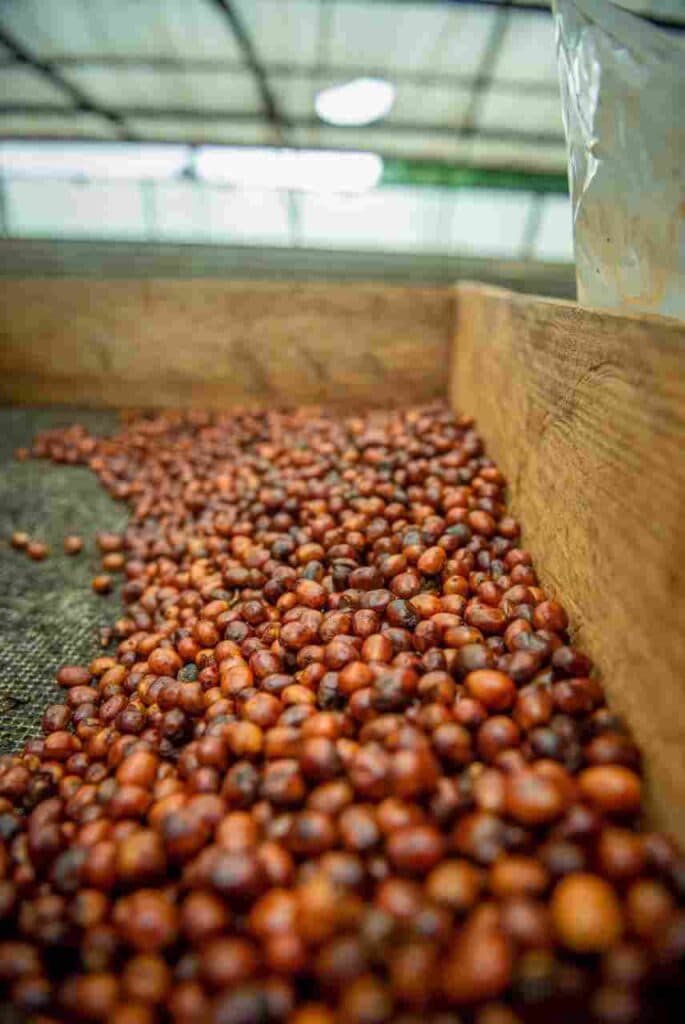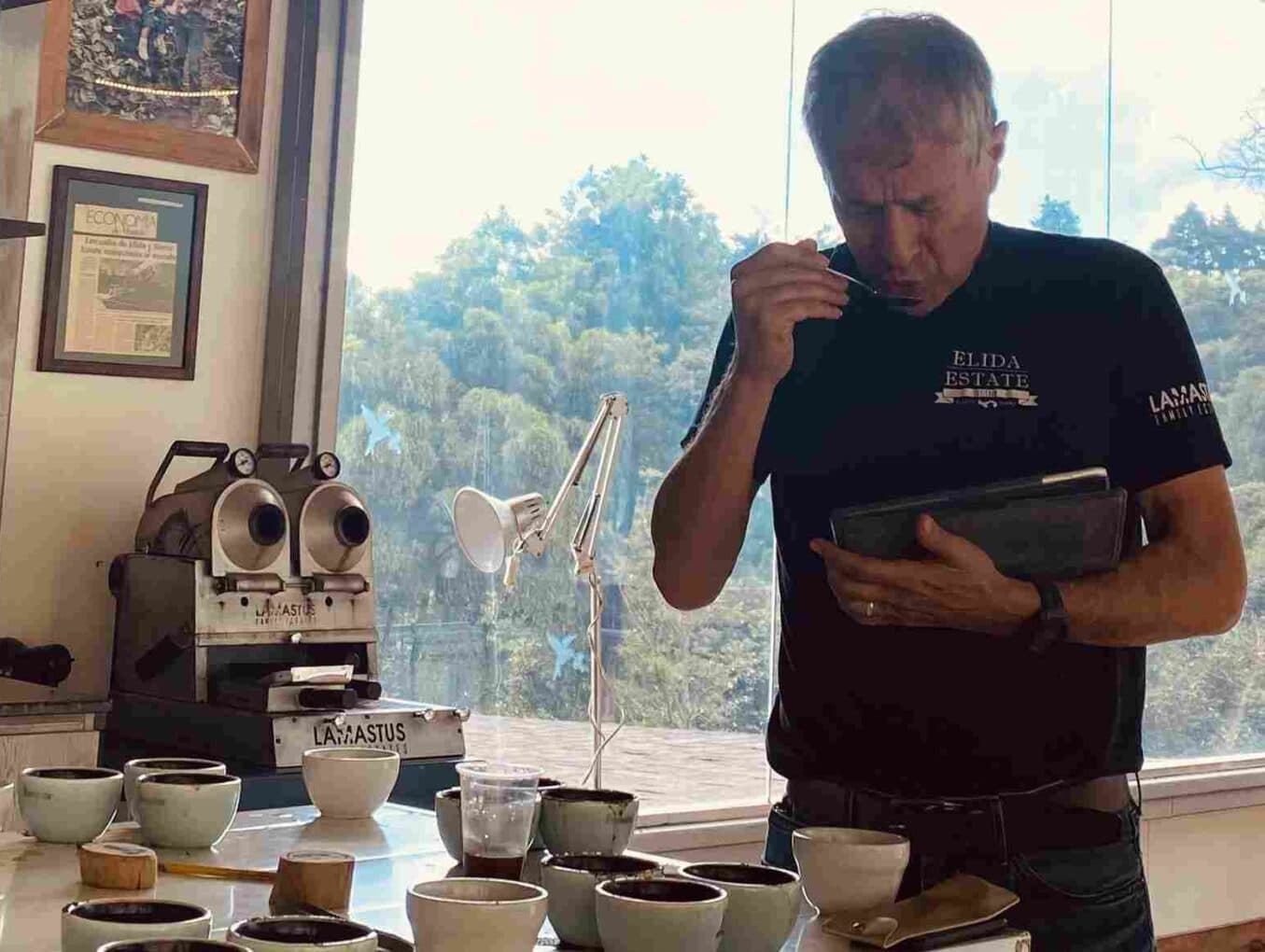Nowadays, when we think of the best coffee internationally, the most expensive and sought, after by coffee lovers and experts comes to mind, the Geisha coffee produced in Panama. This variety has been harvested and produced for years in different farms in Chiriqui Highlands. One of the families that have held the most important awards in the international coffee industry in recent years is the Lamastus family, who s effort contributed to improve each year the results of the production of their specialty coffee with the Geisha variety (from Ethiopia) that manages to acquire stronger flavors when planted in the fertile lands of Chiriqui, at the indicated height and with a unique microclimate, creating the best cup of coffee. The Lamastus family has managed to break records for the flavor quality that can be tasted in a cup, positioning Panama as the country with the most valued coffee in the specialized market for this product. The Visitor / El Visitante spoke with Wilford Jr. Lamastus, a fourth generation involved in the coffee industry, who expresses in every word the pride of continuing the legacy of “Lamastus Family Estates”. The family business is 103 years old.
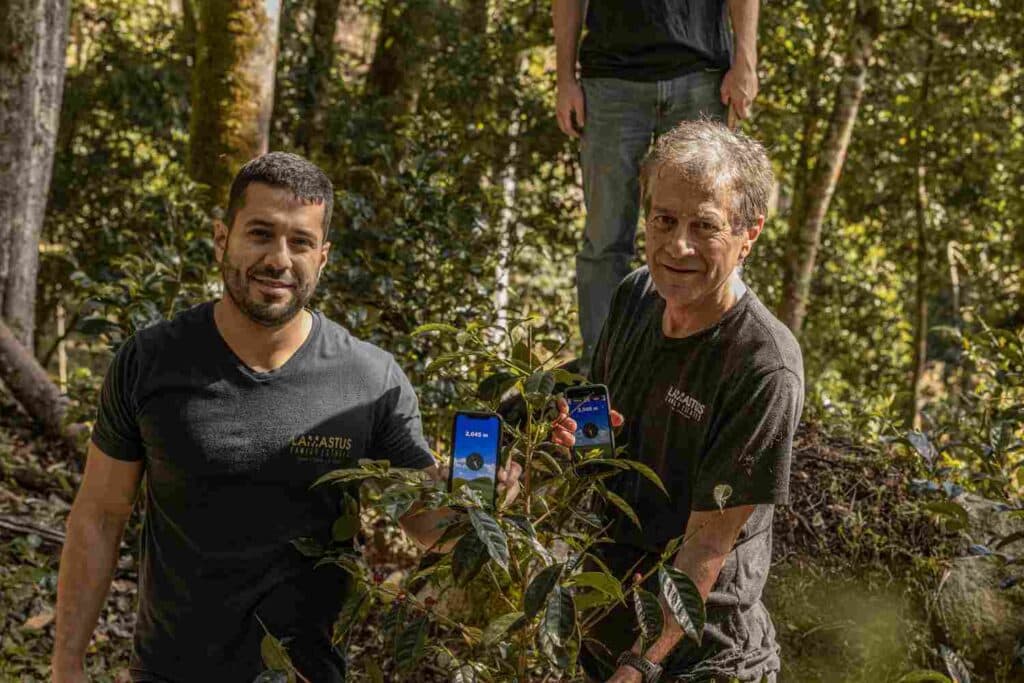
What makes the Lamastus family history different and successful in the coffee industry?
“My great-grandfather had arrived to build the Canal, and years later he founded the farm where he grew coffee, and worked on exporting. My great-grandmother was left a widow, but she continued to grow and export coffee, and my grandfather did the same. Each one was contributing something to the evolution of the coffee industry. We evolved from selling coffee locally to exporting it. Then came the quota system, my grandfather was one of the representatives of Panama in the International Coffee Organization, which was a way of exporting commercial coffee not specialty.
However, in 1991 Panama entered a very strong coffee crisis. Years later, the export quota agreements had been broken, and he had to reinvent the company. My father was the one who had the vision to reinvent itself, and turn Panama into a producer of specialty coffee, since for commercial production we did not had the capacity to compete against countries with much higher production volumes. That was when Panama began to produce specialty coffee for more demanding markets. This begins in 1995 with the Special Coffee Association of Panama, where my father was one of the first founders, and also proposed the creation of this movement, where Panama is # 1 in the world for quality score, price per pound, but it has also been influential worldwide by putting producers to reinvent themselves to put their special products to sell at a higher margin or value than the product can generate.
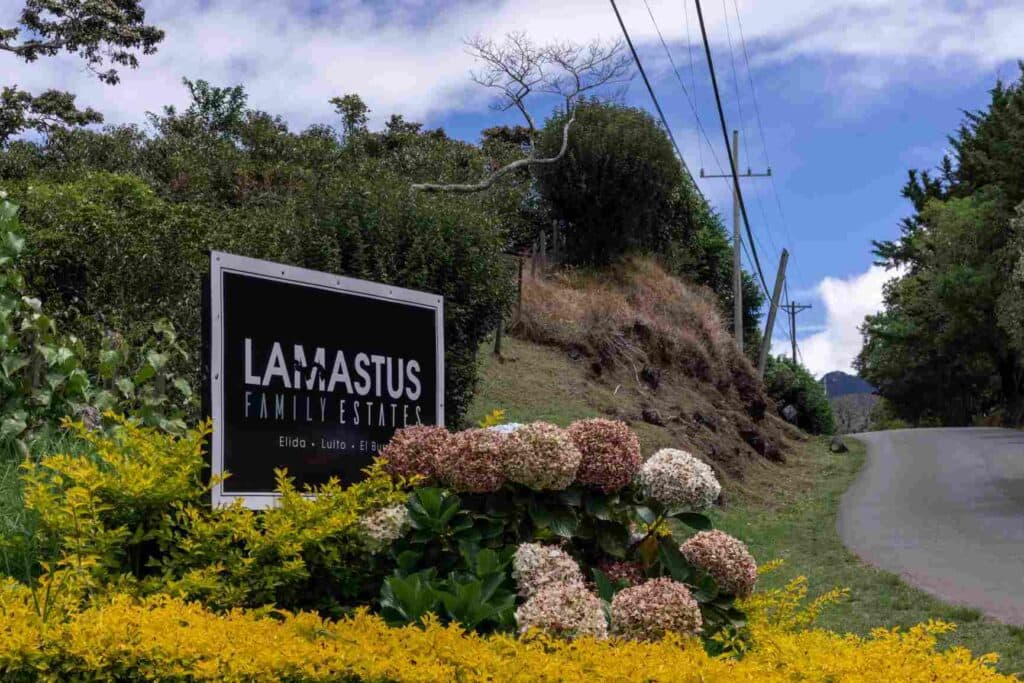
Nine years after the association was created, the Geisha variety was discovered by colleagues in Panama. It was discovered because of the quality in the cup, not because of the variety that was already known. This means that Panama has shown a tendency to differentiate itself from the rest of the world because of how a variant of coffee hits differently. This variety was replanted in many farms in the country, which gives us all the opportunity to position ourselves as # 1 in the world.
In the years 2015 and 2016, we achieved the most important awards and the highest scores in the country and worldwide. We broke the record three times in a row. Sometimes one or the other wins, but local Geisha producers have been collectively positioned as the world’s specialty coffee by international evaluations and auction prices determined by buyers from North America, Europe, Asia and the Middle East. “
We would say that the country should take its example of being able to reinvent itself …
“Panama has to discover and understand what we are. In coffee we are a country that can’t compete in quantities, all our neighbors have higher productivity for land. Panama must be specialized in almost everything it does, because in few things we can compete for quantity ”.
What is the formula for each new generation to continue the legacy and introduced growth?
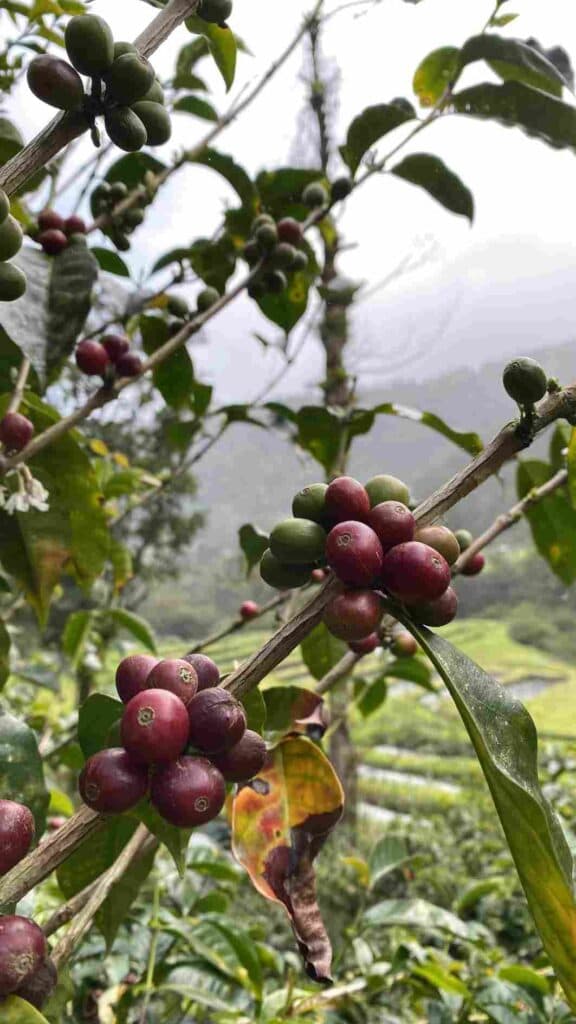
“Since we are young, family members take us to participate in work activities. They not only took us to work, they took me to play at the coffee plantations. We came with the tradition – because my grandfather likes taking a family photo in the coffee plantation when coffee flourished. All that grows roots in us.
We must also be aware of new trends in the world, because if we continue in the same way, it will not be sustainable. My father is still active, a few years ago he told me that we should think about tourism because it generated significant income. This is how we have evolved together. Maybe my generation sees other things like creating brands, managing communication networks, and allowing me to contribute. Likewise, we also see innovation in creating new flavors of coffee through its processes, using nature to our advantage, combining the old school with the current one. It is not only to feel heir to, but to feel part of, and to be the ones who bring evolution. Likewise, when I have my children and nephews, some of them will want to enter the business and do it in the best possible way.
We are in the fifth generation Lamastus, there is a five-year-old nephew, every time he sees the coffee being prepared, he asks questions and likes to go to the farm. It is in their DNA ”.
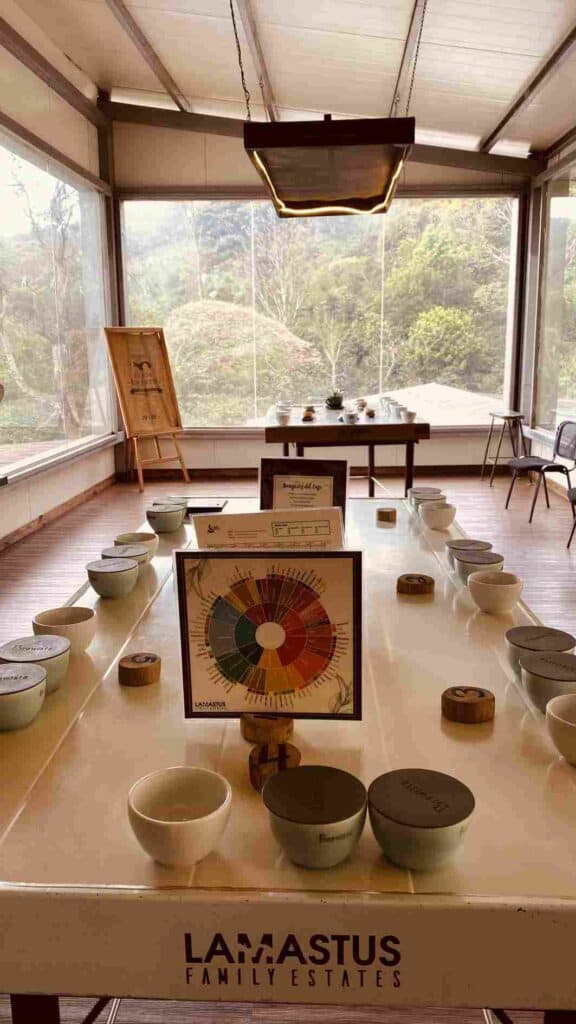
When an American, European or Asian tastes a cup of coffee produced on their farm, what does that cup of coffee tell them about Panama?
“Panamanian Geisha coffee (from any farm in Panama) will always be the most expensive on a coffee menu anywhere in the world. There are other Panamanian coffees that are expensive too. When those things happen, coming from a fairly small rural town, and we see how in cities like New York, Los Angeles, Shanghai, Tokyo, Korea, they see Panama coffee as the most important and the most expensive, for them it is very important that when buying, the package says Panama. One feels great pride because you are exporting the name of the country in the best possible way.
What can I say about those who drink Panama coffee? That it has a differentiating effect. Our geographical condition is unique, we are a country lying between two oceans, the tropics, our natural biodiversity, all of this is being proven by those who buy a cup of coffee. An expert told us that it is not only to taste the nature and the climate around you. It is also the people and culture that have contributed a lot to this coffee, the people who came to work at the Canal, as well as the Ngobe and Spanish indigenous peoples; the client proves that unity, collaboration, as well as nature and culture ”.
How has Geisha coffee supported the country brand? How do you think we could do to promote it more internationally?
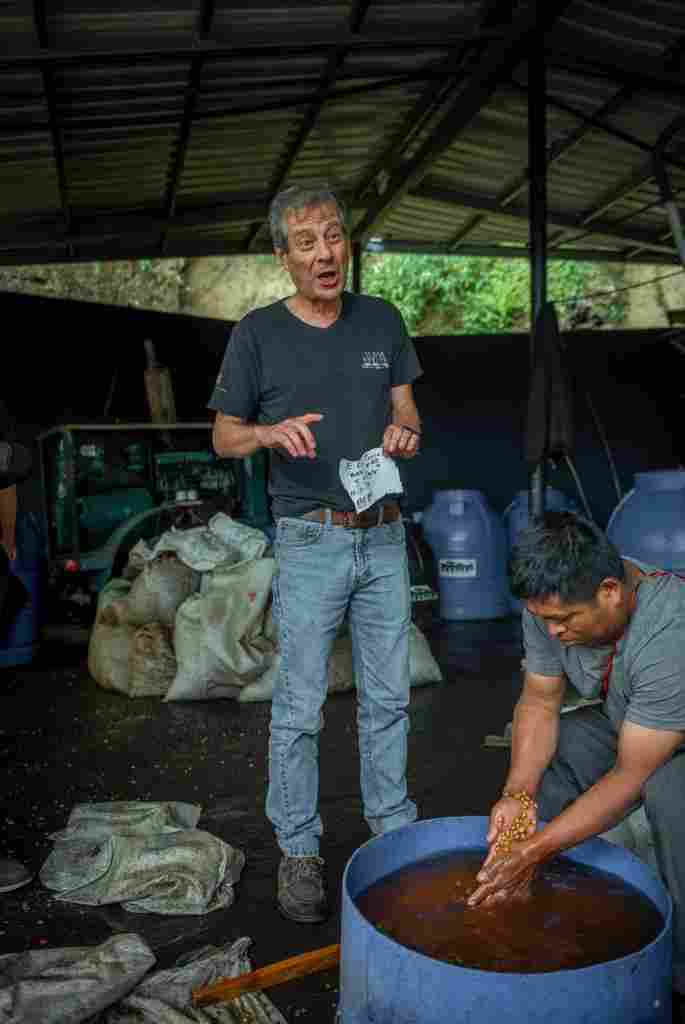
“Coffee has made people from around the world start to hear the name of our country in other ways and wonder what is in Panama, it is a way in which the Geisha contributes to the country and they see it as a tourist attraction. There is a niche in those who love and specialize in coffee. What can we do? Talk and write about that, that each government brings the Geisha coffee from Panama to other countries as a gift, so that people have knowledge that Panama has a coffee trail. Governments, advertising and the media have to look for ways to bring communication of the Geisha to an international level.
